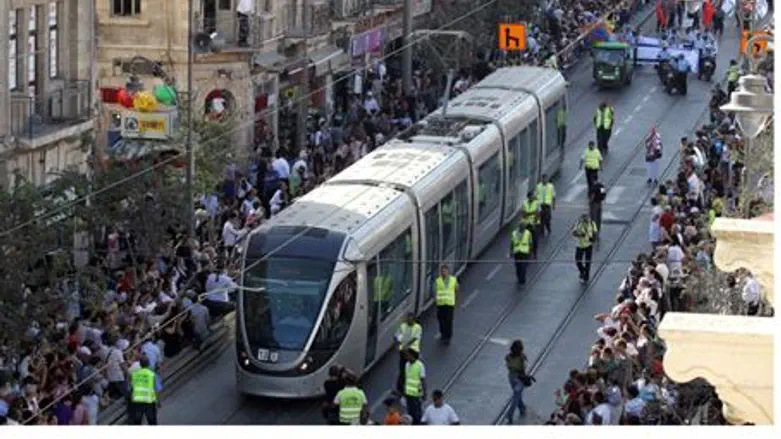
The Jerusalem light rail has proved far less popular than Israel had hoped. In a meeting of the Knesset subcommittee for finance of public transportation, it was revealed that 70,000 passengers ride the light rail each day – less than half of what policy makers had anticipated.
The financial flop will be covered by taxpayers. Under its deal with Citypass, the company operating the train, Israel agreed to ensure a minimum of 140,000 rides on the light rail per day. That commitment will leave the state with a bill of NIS 80 million this year to cover the cost of 70,000 empty seats each day.
The deal with Citypass will be in effect for 30 years, said City Council member Yael Entebbe, who brought the figures before the subcommittee. Entebbe warned that the long-term deal is likely to mean heavy financial losses for the government.
Entebbe expressed outrage over the commitment. “We want to see the contract, and if necessary, to establish a committee of inquiry,” she told Arutz Sheva. “[The deal] is not good for the country or for the passengers.”
Residents of Jerusalem are suffering the consequences of the state’s contractual obligation as Jerusalem cancels bus lines in order to encourage light rail use, Entebbe said. “Residents of the southern part of the city are held hostage to the train line. The buses from Kiryat Yovel and Ir Ganim were canceled to force everyone to use the light rail.
“Train passengers are dissatisfied,” she continued. “Arrival times have been pushed back, the crossing points are complicated, and train workers' treatment is insufferable.”
Residents of Jerusalem have also complained that the light rail increases Arab harassment by making it easier for residents of hostile Arab neighborhoods in the northern part of the city to reach Pisgat Ze'ev and other Jewish neighborhoods.